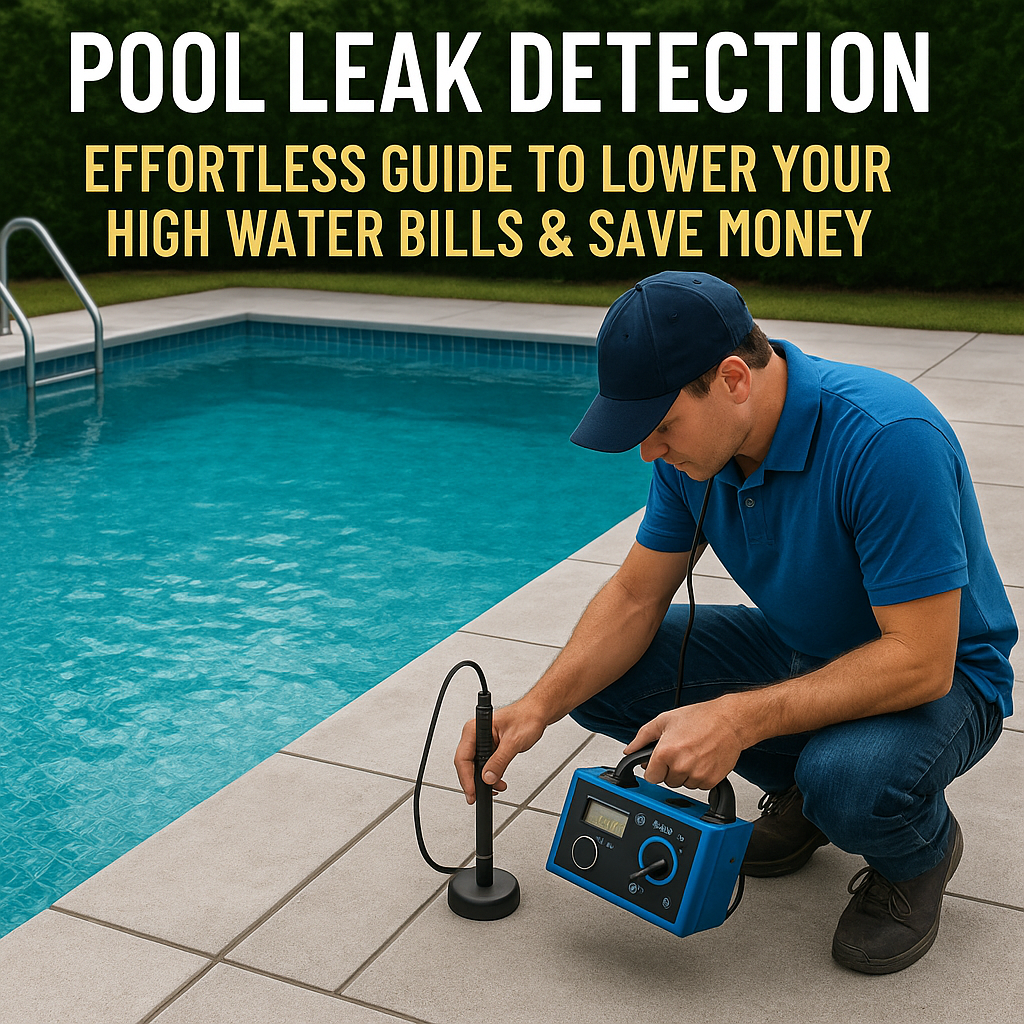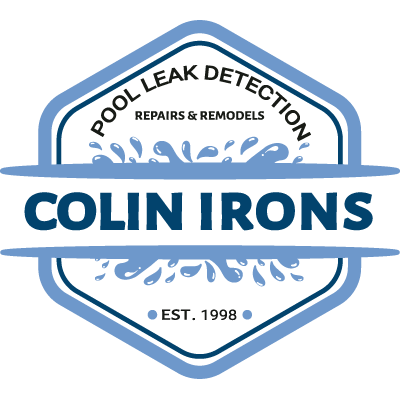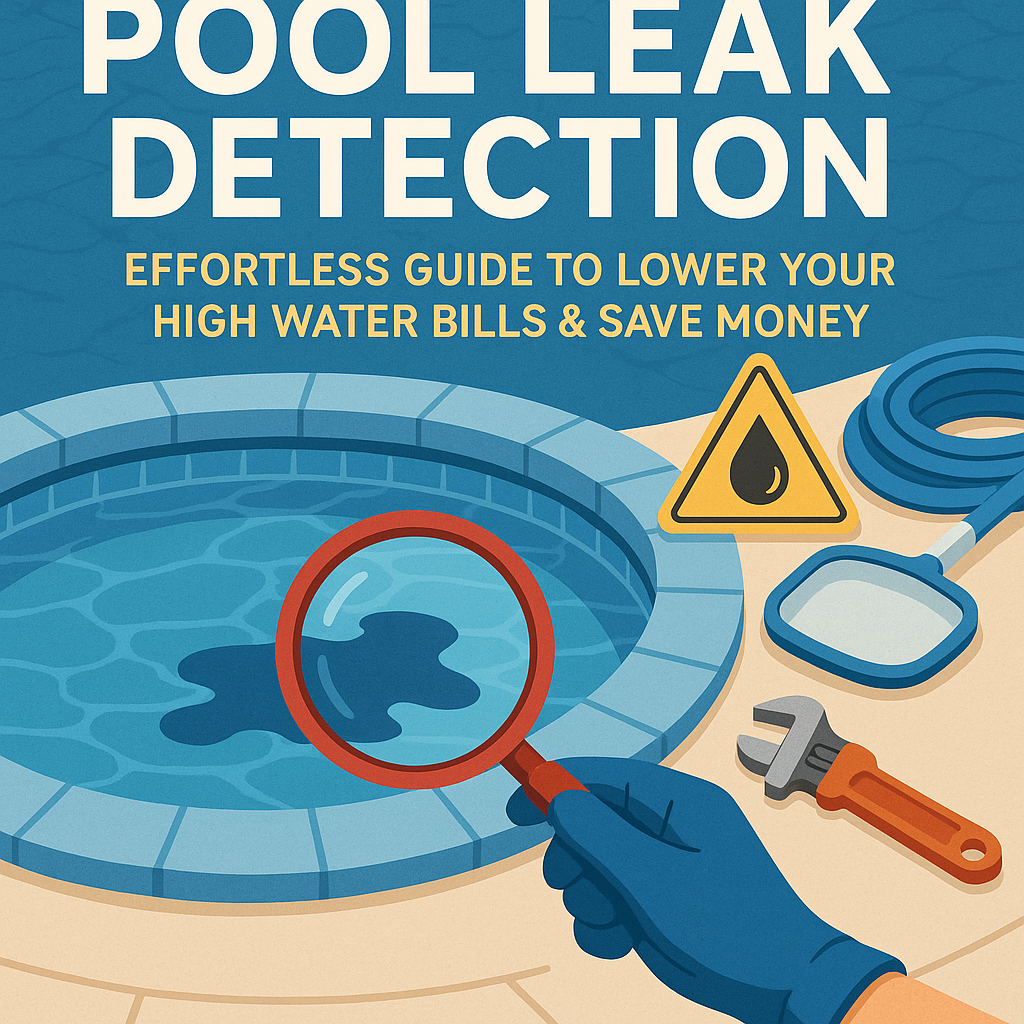Pool leak detection is the critical first step in reducing high water bills and saving money. Pools are great assets, providing fun, relaxation, and a cooling respite from summer heat. But when they leak, they can end up costing you money. That’s why savvy pool owners understand that preventing and fixing leaks should be part of their regular pool maintenance routine. This article provides an effortless guide to pool leak detection and repair, showing you practical ways to enjoy your pool while also preserving your wallet.
Why pool leak detection is important
Many pool owners experience the unwelcome surprise of excessively high water bills, only to realize that a silent pool leak has been draining their finances. Without prompt detection and repair, a small leak can lead to significant water loss – up to 10,000 gallons a year for a 1/8 inch-diameter leak, according to the United States Environmental Protection Agency (USEPA).
In addition to high water bills, pool leaks can cause other problems such as:
• Damage to pool equipment
• Increased chemical consumption to maintain pool cleanliness and pH balance
• Erosion of soil under and around the pool structure
Regular pool leak detection can help you prevent these issues, save on water bills, prolong the life of your pool, and protect your investment.
How to detect a pool leak
1. The bucket test
The simplest method of pool leak detection is the bucket test. Fill a plastic bucket about 3/4 full with pool water and mark the water level on the inside and outside of the bucket. Place the bucket on a pool step, ensuring the water in the bucket is at the same level as the pool water. Leave the bucket undisturbed for 24 to 48 hours.
The water level inside and outside the bucket should drop at the same rate if there is no leak. A greater drop in the pool water level indicates a leak.
2. Check for damp spots around your pool
Persistent wet spots or unusually lush grass around your pool could signal a leak. Check your pool lining or shell for cracks, gaps, or tears, especially around returns, skimmers, lights, and any other fixtures in the pool structure.
3. Monitor your pool’s chemical balance
A pool leak could cause a constant need to add more chemicals to keep the pool clean and balanced. If you find yourself frequently replenishing pool chemicals, you may be dealing with a leak.
Pool leak repair: A money-saving step
Once you’ve confirmed a leak through your pool leak detection efforts, it’s vital to promptly repair it. Ignoring even a small pool leak could lead to costly structural damage and incredibly high water bills.
If you’re a DIY enthusiast, you might handle minor repairs using patch kits available for different types of pool surfaces. But if your pool’s leak is substantial or if you cannot locate the leak source, consider hiring pool maintenance professionals. They have specialized tools and technical knowledge, ensuring an effective pool leak repair.
The role of regular pool maintenance
Regular pool maintenance not only keeps your pool sparkling clean but aids in early pool leak detection. It includes:
• Checking your pool’s water level
• Maintaining pool chemical balance
• Inspecting the pool structure
• Keeping filters and pool pumps well-maintained.
A well-maintained pool is less likely to develop leaks and less likely to cause unanticipated water bills.
Conclusion
Pool leak detection is an effective way to keep your water bills under control and save money. Detecting and repairing leaks promptly prevents water wastage, reduced chemical efficiency, and potential damage to your pool’s structure.
Remember, regular pool maintenance not only ensures your pool’s longevity but also aids in early leak detection. Whether you opt to DIY or hire a pool maintenance service, consistent care can help you make the most of your pool without breaking the bank.



